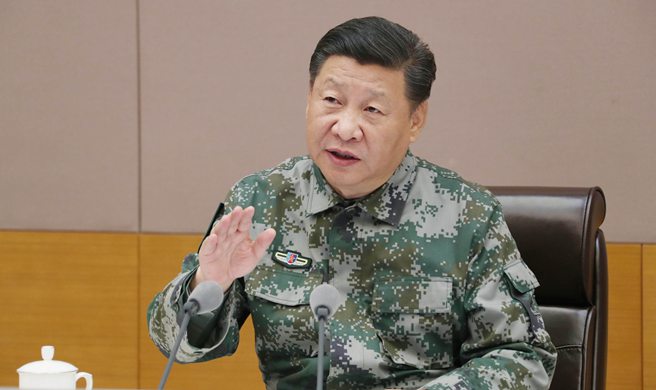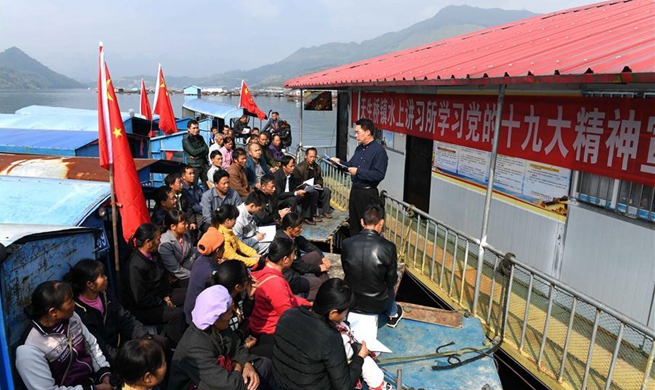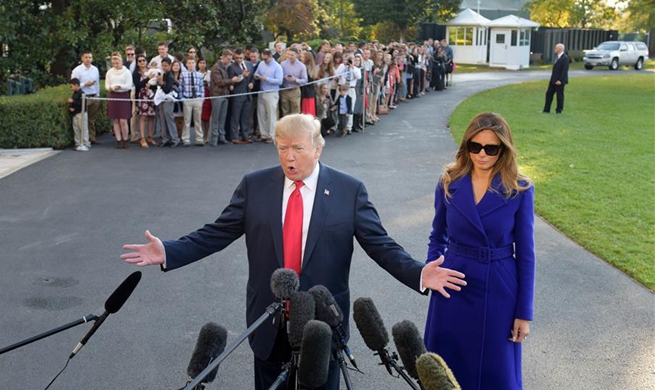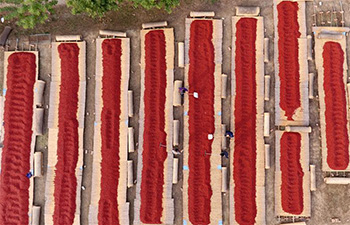by Xinhua writer Zhu Dongyang
WASHINGTON, Nov. 3 (Xinhua) -- While awaiting U.S. President Donald Trump's first visit to the region, Asian countries have been closely watching his soon-to-be-unveiled Asia policy. The White House host is well advised to divert his interest - if there is any - in the former U.S. divide-and-rule strategies, and instead steer his country back onto the track of consultation and cooperation.
Considering its seven-month track record of backtracking on almost everything former President Barack Obama had promoted, the Trump White House is likely to depart from the previous administration's "rebalancing to Asia" strategy.
The White House has already hinted Trump's intended focus on the Korean Peninsula nuclear issue and trade during the trip. Both issues, requiring more than ever his readiness to act constructively for win-win results in the region, test the flexibility of his America First policy, as well as his "art of the deal" that demands convergence gain an upper hand over divergence in most cases.
On the Korean Peninsula, the Trump administration has been sending mixed and frustrating messages.
The president and his Defense Secretary James Mattis have warned from time to time a full-scale military response to the nuclear ambition of the Democratic People's Republic of Korea (DPRK). U.S. Secretary of State Rex Tillerson, however, insists that diplomacy remains the U.S. centerpiece to settle the confrontation. Trump teased Tillerson, saying he was "wasting time" talking to Pyongyang, and direct talk was unrealistic in the foreseeable future.
The nuclear crisis on the Korean Peninsula is in essence a crisis of trust between Washington and Pyongyang. Compared with pressuring Beijing to tame Pyongyang and others to isolate it, the U.S. willingness for dialogue and readiness to offer the country its much-needed security promise is a better option for all.
If the Trump administration is indeed interested in cooling down the nuclear-related tit-for-tat wrangle, not just fanning the flames to justify its presence in the region, it needs to work with all relevant parties to create conditions for a peaceful settlement.
On trade, the Trump administration said its top priority is to shrink the U.S. mounting trade deficits with many economies. However, Washington's obsession with cutting them down is misplaced.
To achieve that end, it has ditched the Trans-Pacific Pact (TPP), and threatened to slap punitive tariffs against its trading partners.
U.S. trade deficits with regional economies as well as with others worldwide are mainly caused by its low savings rate and persistent government budget deficits. If one consumes more than it can produce, its imports would certainly go up. Thus foreign trade should not be blamed.
Also, resorting to punitive measures against others is likely to spark countermoves, which may even result in a trade war. Expediting U.S. high-tech export would be a constructive solution, as it will help Washington trade with a market-oriented region featuring increasing openness, mature economic structure and complementarity with the United States.
"Putting America first" is the watchword of the Trump administration. Yet in an increasingly interconnected global economy, multilateralism, open-mindedness and cooperation should be valued over go-it-alone-ism.
Trump cannot expect to solve all his concerns overnight in one visit. For a master in transactions, as he typecast himself to be, odds of success in his coming Asia tour look high. But his ready commitment to a constructive Asia-Pacific policy would certainly be a plus.

















